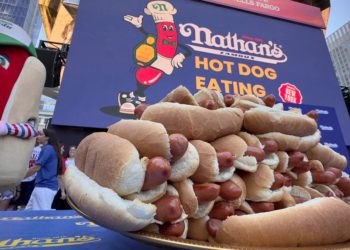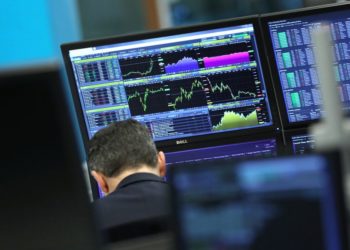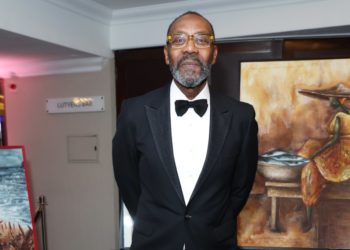Eugene “Big U” Henley, an accused Crips leader, will remain behind bars while he faces charges of fraud, robbery, extortion and running a racketeering conspiracy, a federal judge in Los Angeles ruled Tuesday.
As Henley, 58, sat quietly in a white jumpsuit, U.S. Magistrate Judge A. Joel Richlin cited the violent allegations against him, including the murder of an aspiring rapper, and what he called, “a lot of evidence of obstruction of justice.”
In ordering Henley to remain in custody pending trial, Richlin said he was concerned that Henley might flee and that he was potentially a danger to the community.
“There’s no condition or combination of conditions that would reasonably assure Mr. Henley’s future appearance at court proceedings or the safety of the community,” Richlin said before ruling Friday.
Arturo Hernandez, Henley’s attorney, said his client could be confined to his home and monitored electronically. He also cited the fact that his client’s loved ones were putting up millions of dollars worth of property to secure his release, which he said made it unlikely Henley would flee.
“You’ve got to give him a chance,” said Hernandez, who has represented cartel members and — in the 1980s — serial killer Richard Ramirez, known as the Night Stalker.
“This has been defendant’s second chance,” Assistant U.S. Atty. Kevin Butler told the judge soon after.
Henley previously served 13 years in prison for trying to rob an undercover sheriff’s deputy of 33 pounds of cocaine. He was indicted last month on 43 counts, including tax evasion; embezzlement of donations to his charity, which receives public money; and running a racketeering conspiracy in which he allegedly kidnapped and fatally shot a young rapper named Rayshawn Williams.
Henley has pleaded not guilty to all charges. And, before turning himself in, he made videos denying the accusations against him saying, “I ain’t did nothing.”
“I ain’t been nothing but a help to our community,” Henley said on video. “This the price of being Black and trying to help somebody, trying to help your community and do what you can.”
After the hearing, Hernandez said he planned to appeal the judge’s ruling. Henley’s wife, who attended the hearing Tuesday and at times wiped away tears, declined to comment.
Federal authorities said Henley, who helped launch rapper Nipsey Hussle’s career, had created an image of himself as an entertainment industry entrepreneur and someone giving back to the community. But behind the scenes, they said, was a different story.
“Before the court today is the self-professed most dangerous man in Los Angeles,” Butler said during the detention hearing. “The allegations in this case … prove that this is an accurate description.”
Were the court to release Henley, Butler argued, “he’d also become the most dangerous man to this case, because his entire criminal enterprise is based on fear, intimidation, control.”
“Control of the victims, control of enemies, control of witnesses, control of Los Angeles,” Butler said.
In a federal complaint, authorities likened Henley’s “Big U Enterprise” to a “mafia-like organization” that relied on his “stature and long-standing association with the Rollin’ 60s and other street gangs to intimidate businesses and individuals” in L.A. More than a dozen alleged members or associates of the Rollin’ 60s Crips — including Henley — have been charged in the sprawling criminal case.
In a brief filed before the detention hearing, federal authorities alleged that, “to avoid custody, defendant will no doubt continue his double dealing, as he did to celebrities and donors that he duped into believing they were helping young, underprivileged athletes chase their dreams, when in reality they were unwittingly lining defendant’s pockets as he embezzled donation after donation.
“Even in his short time in custody, he is up to his old tricks, once again trying to use some of those same celebrities for his personal gain,” the government alleged. “He has even suggested that he can manipulate the President of the United States into intervening in the case and dropping the charges, even as he simultaneously derisively refers to the President as “the orange man” while in custody. This Court should not be fooled by the good deeds defendant promises to accomplish if only he could close the detention doors behind him.”
Among a litany of alleged crimes, federal authorities have accused Henley of directing the robbery of an unlicensed L.A. marijuana dispensary that had stopped making extortion payments and of fraudulently obtaining funding from the Gang Reduction and Youth Development program overseen by the L.A. mayor’s office.
Although Butler acknowledged during the hearing that the murder of Williams was “more of a circumstantial case,” he argued that the rest of the evidence and charges “cannot seriously be disputed.” He told the judge that the alleged extortion was captured on video, audio and on the phone and that embezzlement, charity fraud and tax crimes were “documented.”
Butler told the judge that, the night before his arrest, Henley turned his phones off and fled his home.
“One of the potential witnesses to some of his crimes actually asked the government when approached, ‘If you can’t even arrest him, how can you promise to keep me safe?’” Butler said. “That is a legitimate concern and one that would be exacerbated if he were granted bail.”
More than a dozen of Henley’s family members and friends were present in the court Tuesday afternoon and listened as prosecutors played a video Henley made before he surrendered himself to authorities, blaming people posting on social media for the case against him. Among those he blamed was Christopher Lovejoy, a boxer known as “600,” who was present in the front row.
But Butler denied Henley’s claim, saying “none of these individuals have ever spoken to law enforcement on this team.”
Ahead of the hearing, tensions ran high. Henley’s family members confronted 600, questioning why he was in court and if he was there to testify. And they accused Lovejoy, who has more than 100,000 Instagram followers, of being disrespectful Henley.
“I’m here supporting,” he told the family.
“Who?” a woman identifying herself as Henley’s sister asked.
“The court,” he responded.
When 600 walked into the courtroom he sat in the front row and said to Henley “How you doing, man?” Henley did not react or respond.
During the hearing, Hernandez referred to the government’s case as involving “innuendos” and “guess work.” He lauded his client for turning himself in to authorities and said it was a sign that Henley is “not guilty.”
“All the government wants to do is throw a bunch of stuff at the wall and see what sticks,” Hernandez said.
At one point, Richlin asked Henley if he was OK. Henley, who was dealing with cramps from his hands being cuffed in front of him, told the judge “I’m stressed out.”
As Richlin handed down his ruling, he referred to the indictment as “quite extensive,” and said, “the court does believe there is substantial evidence, lengthy evidence, this is not innuendo in the indictment.”
The post Accused Crips leader who allegedly ran ‘mafia-like’ enterprise to remain behind bars appeared first on Los Angeles Times.




